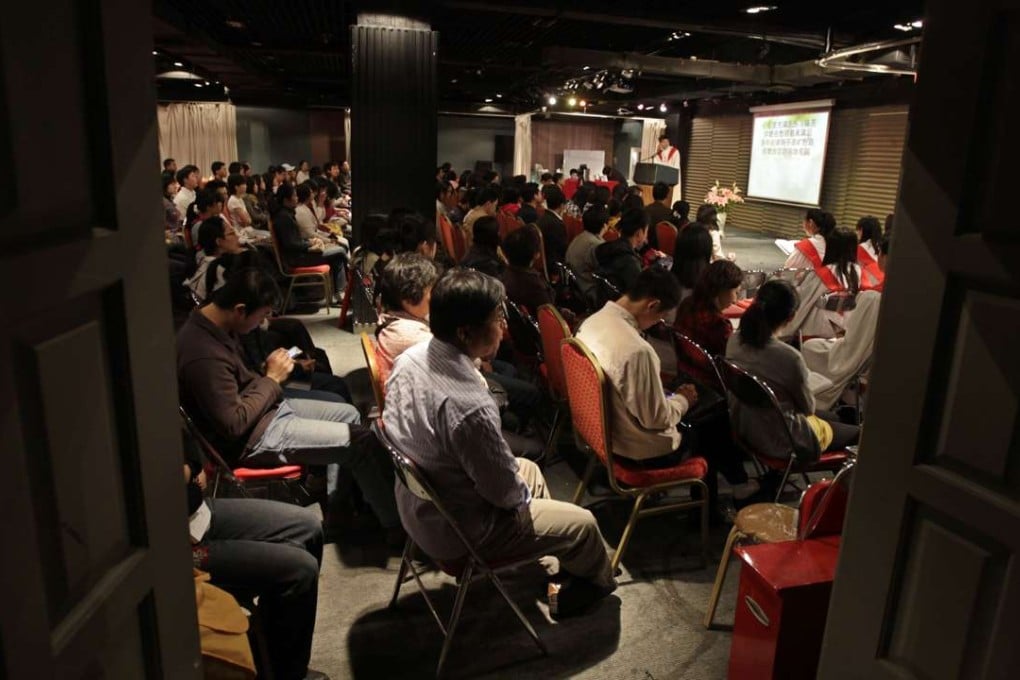Why are Chinese Christians so concerned about new religious affairs regulations?
Those organising illegal religious activities could be fined up to 300,000 yuan

The only light shining along a dark hallway in a commercial building undergoing renovation in northern Guangzhou belongs to the Christian Guangfu Church.
But repeated raids over the past year have left the grass-roots church in Yuantianxia village with little else. Its congregation – mostly migrant workers – has a new keyboard, a guitar and a few dozen plastic stools.
At least three of the 10 “house churches” in Yuantianxia have been shut down or forced to move since May last year, according to Guangfu’s pastor, Ma Ke, who is petitioning the authorities over the treatment of his church. A third-generation Christian from rural Anhui province, he’s been detained more than 20 times for evangelism since 1994.

“I grew up in an environment watching the authorities removing our cow, donkey, chicken and wheat to intimidate my preacher father and brother,” Ma, 42, told the South China Morning Post.
A few days ago a member of his church, Li Hongmin, went on trial after being caught printing about 110,000 copies of gospel material. Li’s family said they were told to expect a verdict within three months.
Ma, who was prevented from attending the trial and prayed outside the courtroom instead, said he expected worse was yet to come.